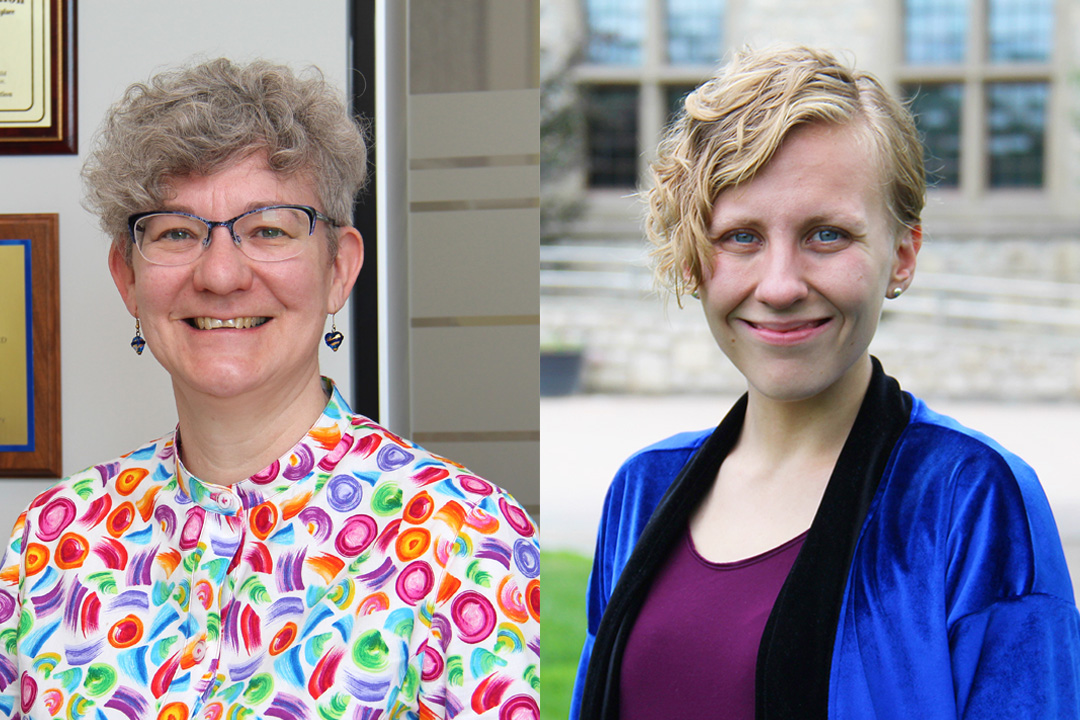
USask researchers looking to help transgender patients
A University of Saskatchewan (USask)-led research team is looking to make navigating the health-care system easier for transgender people in Saskatchewan.
By Kristen McEwenUSask researchers Dr. Stéphanie Madill (PhD) and Dr. Megan Clark (MD) are starting a research project to create new positions called client navigators, who would support trans and gender diverse individuals through the health system.
Hoping to secure funding, Madill and Clark are aiming to begin a pilot project in 2020 by establishing two client navigator positions—one in Saskatoon and the other in Regina.
Madill is a physiotherapist based in Saskatoon and an assistant professor at the School of Rehabilitation Science at USask.
“This project is a really excellent fit for me,” Madill said. “I identify as lesbian and queer. Queer activism has been important to me for over 30 years.”
“Trans health is a clinical interest of mine,” said Clark, who is a family doctor based in Regina and a faculty member in USask’s Department of Academic Family Medicine.
When she was training as a resident, Clark was working with a trans and gender diverse patient to prescribe them hormone therapy.
“The fundamental thing for me is to improve health-care service delivery for gender and diverse people in Saskatchewan. A client navigator is a way to identify gaps to measure and articulate what that is,” she said.
The research project has been strongly guided by trans individuals in the research group, Madill said.
The 18-person research team for the project includes members of the Saskatchewan Trans Health Coalition (STHC), an organization made up of transgender people, activists, primary-care service providers including physicians, and service organizations including UR Pride and OUTSaskatoon.
Two years ago, STHC initially approached Madill and Clark separately to collaborate on research that would improve trans and gender diverse individuals’ experiences with health care. From finding a family physician to psychiatrists, there is a wide range of issues trans people face when they are seeking help in the health-care system.
“Unfortunately there are holes in cultural safety principles, cultural acceptance … Trans people being misgendered, not treated well in the health-care system, which is really unfortunate,” Clark said.
When trans individuals navigate the system, learning about services is often through an informal process.
“You have to know where to look,” Clark added.
Family physicians, or general internists, who will prescribe hormone therapy, are limited in the province. Surgical referrals for top surgery can be made within Saskatchewan, however external genital surgery referrals for patients are made out of province.
Saskatchewan patients can have their procedures partially covered when travelling to Montreal. But in order to receive a referral, patients must receive two surgical approvals from health care providers, one in Saskatchewan and one out-of-province.
“In other provinces, they’ve expanded who can do those surgical approvals, and family physicians who are able to do those approvals see their own list decrease,” Clark said.
Some funding is available for surgical and hospital costs, but there is no support for travel, or time needed for aftercare post-surgery.
Madill said trans patients sometimes find themselves experiencing what’s called the Trans Broken Arm Syndrome.
“You go into an emergency room with a broken arm, and the physician focuses on the fact that you’re trans,” she said. “A broken arm is a broken arm.”
Madill added that accessing mental health services is more of a problem for people needing support.
“Being trans doesn’t predispose a person to (mental health issues),” Madill said. “It’s society that’s so unaccepting that makes it pretty hard to avoid. It’s also the lack of mental health-care providers who understand what it’s like to live as a trans person.”
